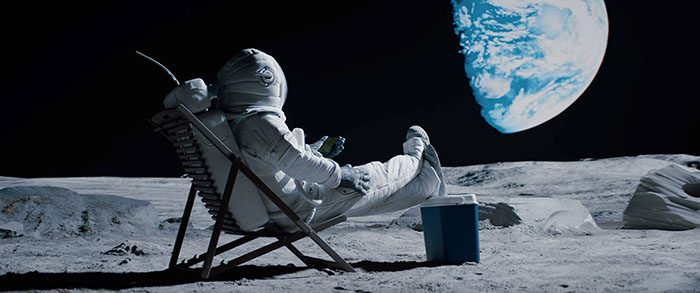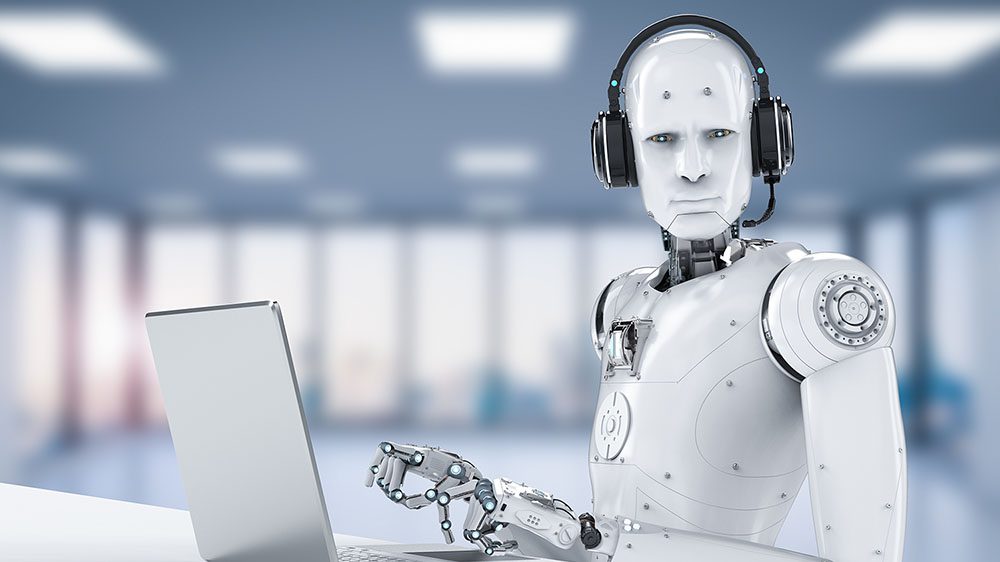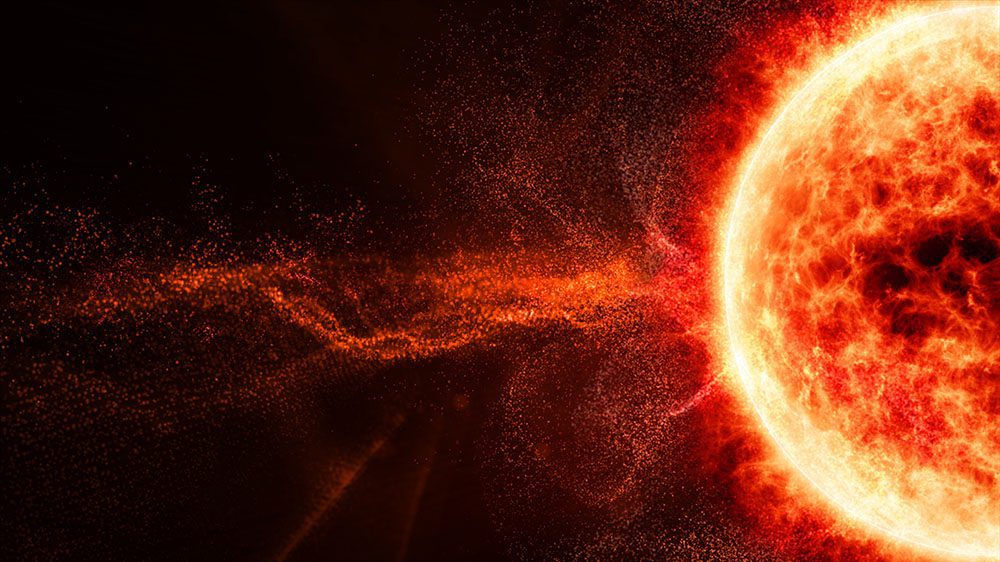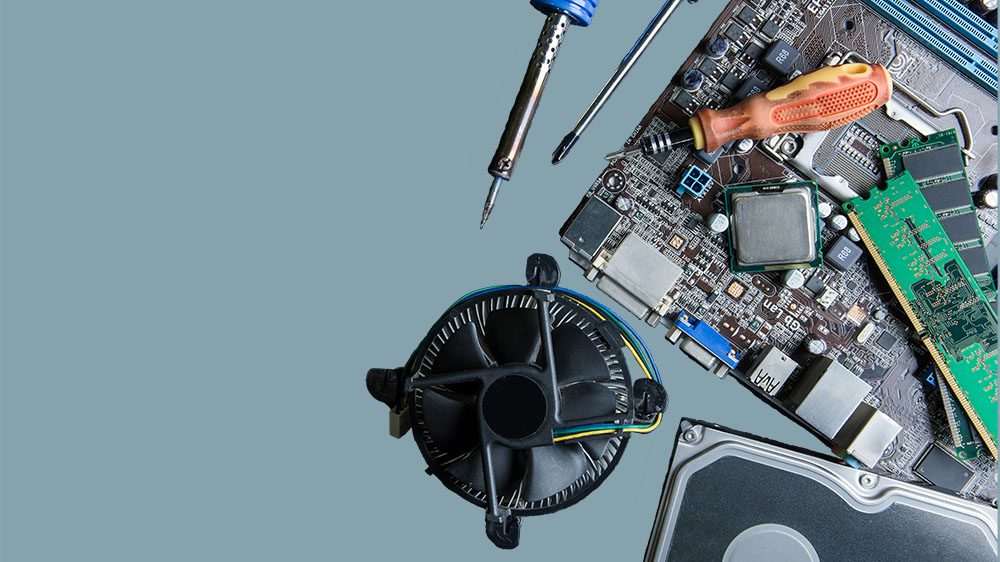Fact or Fiction: Blame It on the Moon
Ever felt like something fishy happens during a full moon, like the moment the full moon rises, the whole data center transforms from well-behaved servers and networking gear to zombies and werewolves (are were-servers a thing?)
Well, if so, watch out for the two (yes, two!) supermoons this August! Supermoons occur when a full moon coincides with when the moon's orbit is closest to Earth, making it appear larger than normal.
The second supermoon is considered a blue moon (when two full moons happen in the same month and where we get the phrase “once in a blue moon.”) This blue moon will be the closest, biggest, and brightest full moon of 2023, so if something hinky happens in the data center in August, you’ll have something to blame it on.
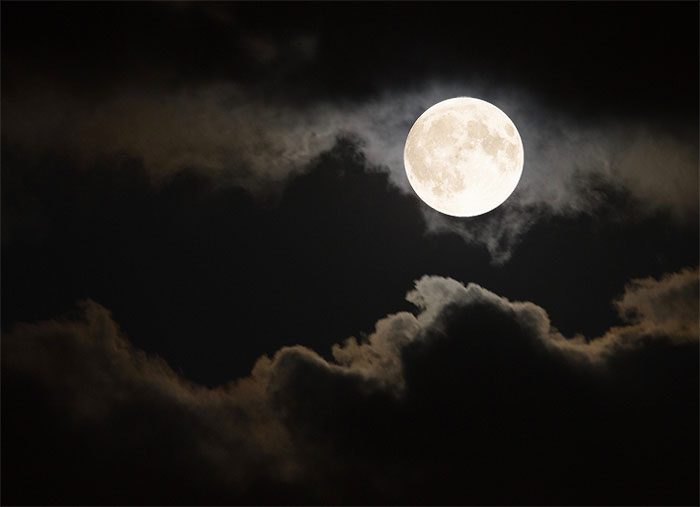
Blame it on the Moon
Why let the sun, with its solar storms and flares, get all the credit for mischief and mayhem? Sometimes appearing benevolent and watchful and other times as jealous and destructive, the moon has captured the imagination of humanity for thousands of years. Ancient cultures wove countless myths and legends about the moon and its phases. Whether connected to gods or goddesses (think Artemis, Ishtar, or Khonsu), fertility and the rhythms of life, the changing seasons, creation stories, or even death, civilizations throughout history have had quite a few thoughts on the moon.
The Man in the Moon and Other Legends
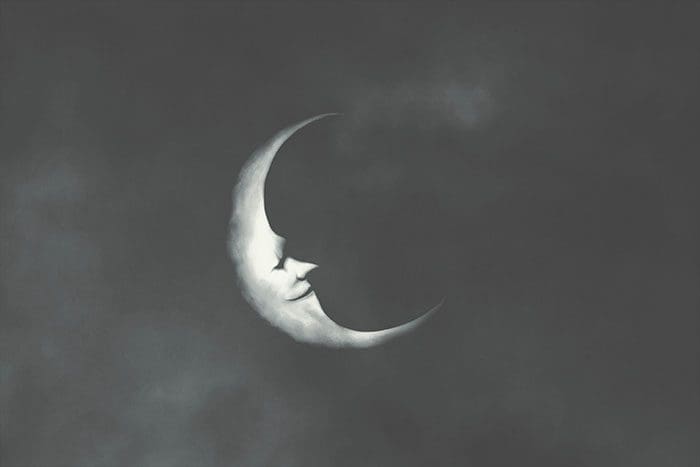
The Man in the Moon is just one of many legends about the moon that crosses cultural boundaries and persists in our modern vernacular. In Western culture, we may talk about seeing a face on the moon's surface — eyes and a mouth in the darker and lighter surfaces of the moon.
Ancient traditions have versions of a man, woman, or animal on the moon — some say it's Cain — the wanderer punished for killing his brother. In Chinese mythology, a goddess is banished to the moon for taking a double dose of an immortality potion.
Other versions from all over the world tell of rabbits, toads, other animals, and men, women, or children sent to the moon for various reasons, usually as some form of punishment. Whether you see a face or simply darkened lava rocks from ancient eruptions on the moon, it's funny to think that a phrase still in use today has a long and rich history of legend associated with it. With so much history and mythology connected to the moon, is it any wonder that modern urban myths have taken root in the fertile ground of our imaginations?
Does the full moon affect technology?
There's no evidence to support it, but...
While the sun's antics can, in fact, affect technology (read more in our article about how space weather can affect technology), there's no evidence to support the idea that the moon has any discernible effect on electronics and technology. However, some interesting conversations and theories have been discussed about how the moon's gravitational pull and effects on water levels could have other impacts that have not been thoroughly studied. We'll have to wait for future studies to come out for a definitive answer.
For now, it's probably safe to say that while it may feel like your data center goes a little haywire during a full moon, it's not likely to have anything to do with the moon. (Maybe it's that pattern bias stuff we talked about in our article about disasters coming in threes.)
The moon does affect...
Most people are probably aware of the moon's effect on the Earth's ocean tides. The simplified explanation is that the moon's gravitational pull draws the oceans' waters closest and farthest to the moon, creating a "bulge" or high tide. NASA has some pretty cool illustrations that explain the moon and its effects on the tides in much more detail.
Besides the influence on many creatures' migration and reproduction cycles, the moon also helps stabilize the Earth's rotation, preventing the wobble in the Earth's rotation from getting more pronounced and erratic. The moon is a pretty important part of life on Earth, whether we think about it regularly or not. But the question has to be asked...
How does the moon affect people?
Werewolves, Lunatics and Moon Sickness
It is a widespread and long-held belief that a full moon causes strange and erratic behavior, resulting in increased crime, psychiatric episodes, and general chaos and lunacy. It's no surprise that our modern word "lunatic," meaning crazy or temporarily insane, comes from the Latin word, "luna," or moon.
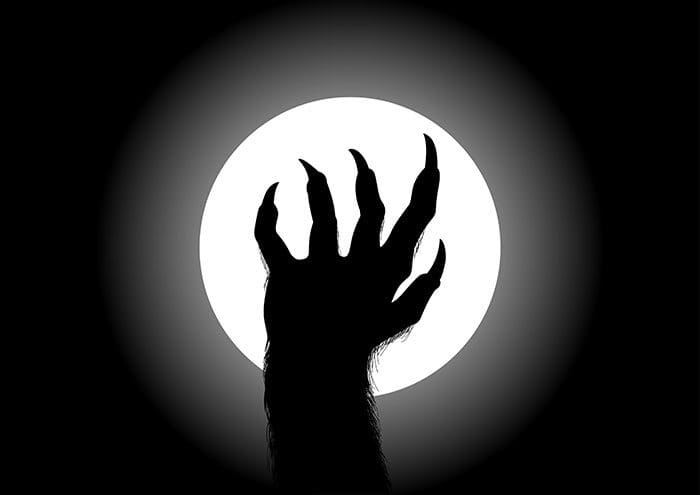
Popular in medieval times, the Old English version, monseoc or moon sick, was a pretty descriptive way of describing what they believed happened to people. The werewolf craze (with a connection to the full moon) was still in full force in 17th-century Europe, where one could be accused and convicted as a werewolf.
In modern times, we're unlikely to accuse people of becoming werewolves on the full moon, but I bet there are times when it would be nice to blame the 3rd hard drive failure in a row on some kind of transmogrified monster determined to ruin your weekend.
Can it be true?
The results of various studies on the effects of the moon on human behavior have been inconclusive. One study showed a possible link with the full moon, particularly affecting schizophrenic patients. Another small study showed a possible connection between those suffering from bipolar disorder and a full moon. Yet another study showed no connection at all between behavior in patients with mental illnesses and the moon.
Despite the general consensus that there is not enough evidence to support a concrete connection between human behavior and the moon, many working in the mental health (81% in one survey) and law enforcement fields believe there might be some kind of relationship.
Biological Effects
Research conducted on the moon's biological effects on humans has come to a similar conclusion. While studies have shown connections between the moon and sleep disturbances, birth rates, and more, many questions still remain. Inherent bias, the placebo effect, research methods, and conflicting results have led to disagreements among scientists regarding the interpretations of the data. The most solid answer is maybe, but more research is needed (isn't that the answer to most scientific things?) So I suppose if you want to blame the moon for disturbing your sleep and making your day more complicated, there's at least some data to back up your story. It's a bit of a stretch, though, to blame any hardware failures on the full moon.
Data Centers on the Moon?
Not as crazy as it sounds!
That might sound like something from a science fiction novel, but it's much closer than one would think! One company is already in progress on this idea rounding up investments and plans to send a "proof of concept" data center to the moon with the IM-2 lunar mission sometime towards the end of the year.
We might not need to hire astronaut field engineers quite yet, but it's pretty crazy to think that could be part of an FE resume — talk about a thorough go bag!
If things are going haywire in your data center, M Global can help.

It's pretty unlikely that hardware failures and other data center hiccups have any relation to the phases of the moon (unless loss of sleep made someone mess around with something they shouldn't). But either way, M Global can help!
Plenty of other things can cause outages, failures, slow performance, and downtimes. Let's get you going with hardware support that will set your mind at ease and free up your brain space to think about more important things - like werewolves, the man in the moon, or the likelihood of needing astronaut training for field engineers. Give us a call at 855-304-4600 to get started!
Get Started Now
We want you to consider us an extension of your team, a trusted resource and advisor. Call us today at 855-304-4600 to find out more.
Resource Links
If you want to fall down the research rabbit hole on this topic, check out the resource links below to learn more about the moon!
How does the moon affect the Earth?
Suggested Content

Author Note:
Written by Angie Stephens with contributions from M Global team members including SMEs, management executives, and more.


